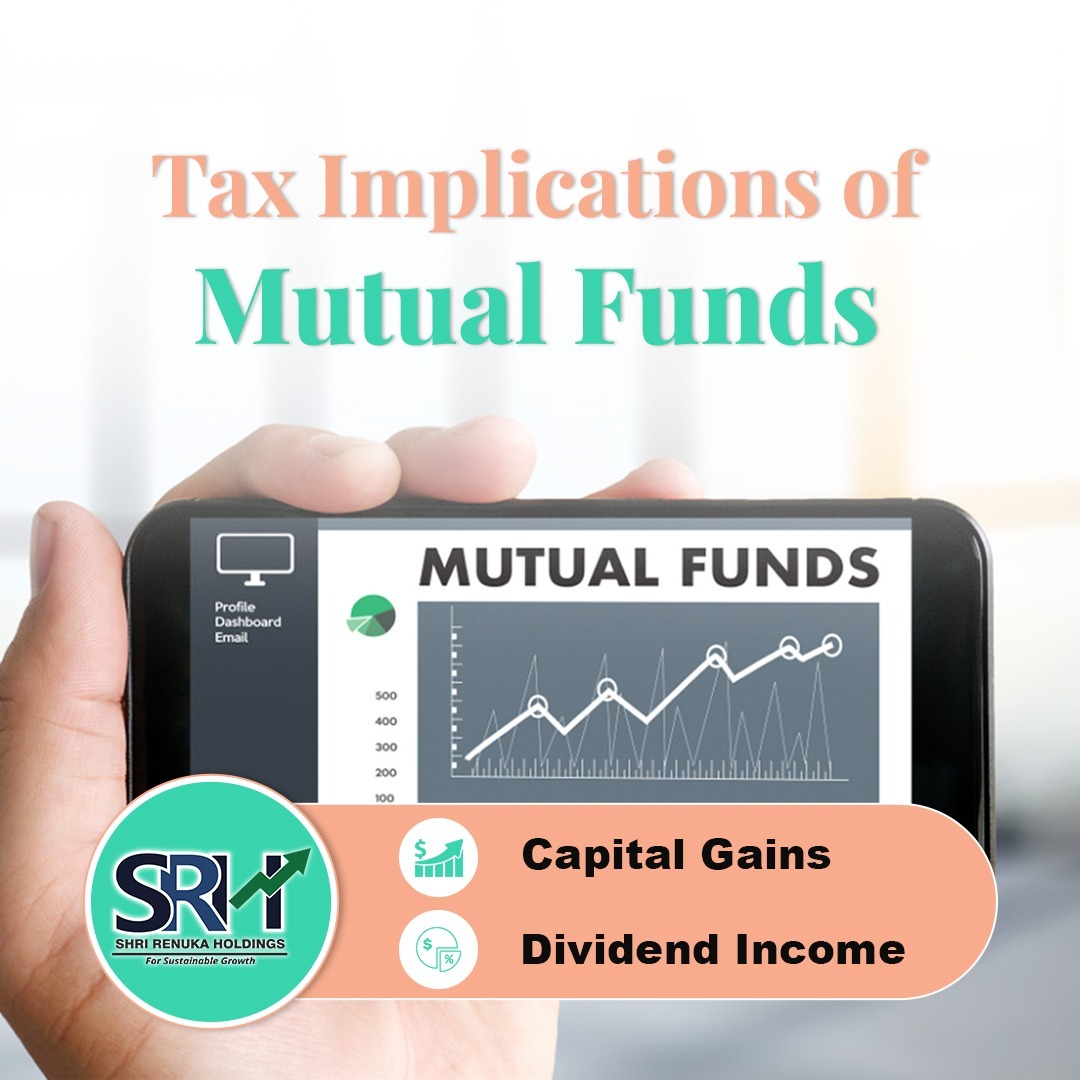- info@srhworld.com
- +91 (20) 24616106 | Helpline : +91 84849 14844
What are the Tax Implications of Mutual Funds?
Mutual funds are a popular investment vehicle as these enable investors to meet their financial objectives. Additionally, it is a tax-efficient investment vehicle that makes it another beneficial option. However, most investors do not consider the tax implications of mutual funds and may make incorrect investment decisions.
Profits earned on mutual fund investments are known as capital gains, which are subject to certain taxes. However, these depend on multiple variables that are discussed below:
Profits earned on mutual fund investments are known as capital gains, which are subject to certain taxes. However, these depend on multiple variables that are discussed below:
Type of fund:
Tax implications vary for different types of mutual funds, such as equity, debt, and hybrid funds
➔ Investment period
The period between the purchase and sale of the mutual funds is another factor as short-term and long-term gains are taxed differently➔ Capital gains:
The difference between the purchase and sale prices are known as capital gains and are liable to tax➔ Dividend income :
The portion of the accumulated profits distributed by the mutual fund houses is known as a dividend and is subject to certain taxesHow do investors earn profits in mutual funds?
Investors can earn income in two ways from their mutual fund investments. First, capital gains are realized from the appreciation of the prices of the units. Secondly, mutual fund houses may distribute surplus cash in the form of dividends paid to the unit holders.
Mutual Fund Taxation
➔ Dividend income
According to the amendments made in the Union Budget 2020, dividends earned on mutual fund investments are taxed as per the regular slab of the investors. Prior to this modification, mutual fund houses deducted the Dividend Distribution Tax (DDT) before paying the investors. With the amendment, dividends are added to the heading "Income from other sources" and taxed as per the income tax slab.➔ Capital Gains
Capital gains tax on mutual fund investments depends on the type of scheme and the holding period. The tax implications are as below:➔ Equity Funds
If the holding period is 12 months or lower, the capital gains are short-term and taxed at 15%. On the other hand, for capital gains earned on investments held for more than 12 months, the tax is 10% without any indexation benefits.
➔ Debt Funds
Irrespective of the holding period, capital gains earned on investments in debt mutual funds are taxed as per the slab rates of the investors.➔ Conservative Hybrid Funds
Between 75% and 90% of the fund corpus is invested in debt instruments. The capital gains earned on such funds are taxed as per the slab rate of the investors.➔ Balanced Hybrid Funds
The fund corpus is almost equally invested in equity and debt instruments. Short-term capital gains where the holding period is less than three years are taxed as per the investors' slab rates. Long-term capital gains earned when the holding period exceeds three years are taxed at 20% without indexation benefits.➔ Aggressive Hybrid Funds
A majority of the fund corpus is invested in equity and equity-related instruments. Short-term gains where the holding period is less than 12 months are taxed at 15% whereas long-term gains are taxable at 10% without indexation benefits.Tax Implications for SIP investments
Systematic Investment Plans (SIPs) allow investors to invest a specific amount at regular intervals. Based on the prevailing Net Asset Value (NAV), the investors receive proportionate units in the mutual fund scheme.The redemptions on these units are processed on as FIFO (first0in, first-out) basis. For example, if an investor invests in an equity fund SIP for one year. At the end of the year, the capital gains on the first instalment are long-term (since the holding period is 12 months) and taxed at 10% (if the gains are below INR 1 lakh). The capital gains on other instalments are short-term and liable to 15% tax along with the applicable cess and surcharge.
Mutual fund returns are impacted by tax implications. Investors must understand these before making an investment decision. To maximize returns and ensure mutual fund investments are tax-efficient, connect with our SRH experts today.





































